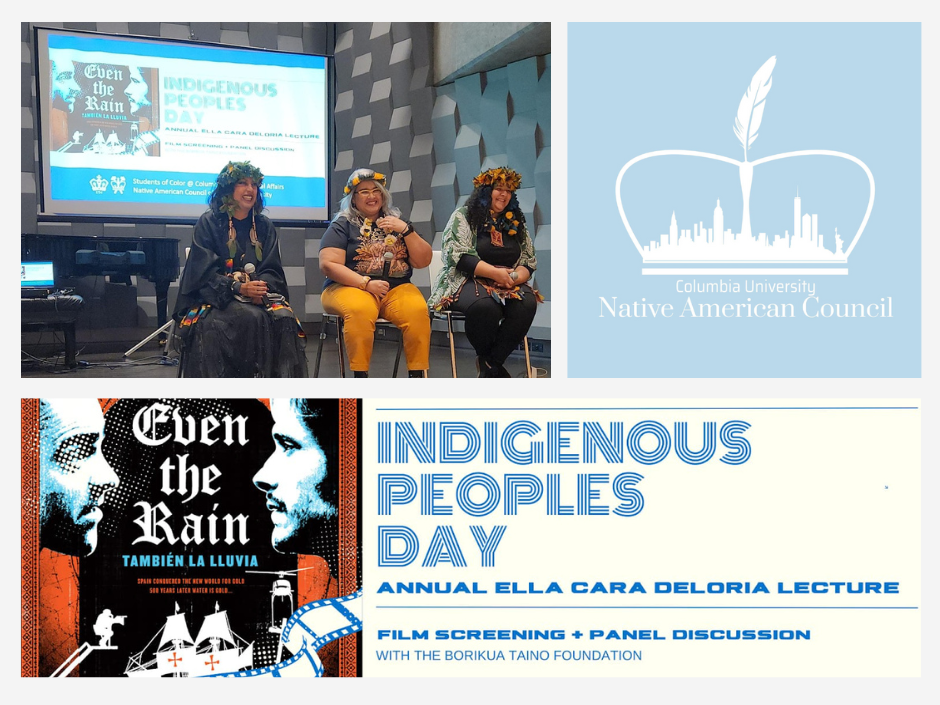Táino Nation of Boriken Meets with Cheri Smith, Founder of Alliance for Tribal Clean Energy to Discuss Native-Led Solutions the Energy Crisis in Boriken
- Alexandria Cruz

- Mar 28, 2023
- 3 min read
Updated: Apr 18, 2024

Members of the Taino Nation of Boriken met with community ally Chéri Smith of the Mi'kmaq Nation. She comes to us as a 2022 fellow MIT Solve Indigenous Communities Fellow along with Board President Brooke Rodriguez and Board Secretary Alexandria Cruz. Chéri is the founder, president, and chief executive officer of the Alliance for Trial Clean Energy, a nonprofit dedicated to capacity-building support to tribes through four key pillars built on a strong foundation of Native American culture and values: Technical Assistance & Project Finance, Energy Policy & Government Relations, Information, Resources & Events, and Education & Workforce Development.
We met with Chéri to discuss the state of Boriken's power grid. In 2017, Hurricane Maria devastated the island and disrupted the already turbulent power grid then run by the Puerto Rico Electric Power Authority (PREPA), a government-owned corporation. PREPA was responsible for generating, transmitting, and distributing electricity throughout the island but its aging infrastructure, ongoing financial challenges, and reliance on fossil fuels left the island's power grid further destabilized. After failing to maintain a stable grid for years after the hurricane, the government moved to privatize energy on the island. LUMA (owned by Canadian energy firm ATCO Ltd and U.S. energy contractor Quanta Services) won the contract and officially took over 2021 but would not be prepared for the arrival of Hurricane Fiona in 2022. This time the entire island lost power for over two weeks, causing widespread losses of food, medicine, and even lives. Still, the island has been slow in its attempts to solve the issues, despite promising to move to renewable energy sources by 2050, the island is currently only running at 3% renewables, even after a cash influx of $13 billion in federal funding by FEMA.

Darieliz Michelle Lopez, her 20-month-old son and three-year-old daughter sit on a sofa where her apartment stood in San Isidro on Sept. 28. Andres Kudacki for TIME
This article by Time Magazine paints a stark portrait of the conditions islanders faced due to climate change. Photos of people standing among the ruins of their homes, others trying to generate their power so people could charge their phones and stay connected, elders suffering without their medical devices and so much unprecedented loss. With all this in mind, we turned to Chéri for her expertise and advice on how we can build outside of the now privatized power grid. She told us of her contacts on the island already working to install solar grids for homes. She explained:
"We approach our work in two eyes seeing - by seeing the value of Indigenous wisdom and knowledge but also seeing the value in Western technology. I would love to help identify and vet service providers with Indigenous communities and make sure that they will be respectful in how they engage with communities."
As we work to reestablish the Taino Nation of Boriken, we now have an ally experienced in working with modern technology through an indigenized lens, a movement that is pertinent to our shared goal of indigenous sovereignty for all matters. We envision self-sustaining homes that can safely reconnect to energy after weather events and not have to rely on the remnants of PREPA's failed power grid, or LUMA's slow to advance management.
Chéri Smith is the founder, president, and chief executive officer of the Alliance for Trial Clean Energy. Chéri is a woman of Indigenous and European descent whose experience addressing climate change and struggling economies with renewables spans over two decades. To her role, she brings the wisdom garnered through her many senior leadership positions in the clean energy sector with public, private, and nonprofit organizations – including the American Council on Renewable Energy, Tesla, and SolarCity, as well as senior advisory roles for the U.S. Department of Energy, Interstate Renewable Energy Council, and New York State Energy Research and Development Authority. A descendant of the Mi’kmaq Nation of northern Maine and the Canadian Maritimes, she has made it her life’s work to apply this expertise to support Native communities.
The Alliance is a 501(c)(3) nonprofit organization offering no-cost capacity-building support to tribes through four key pillars – built on a strong foundation of Native American culture and values.




Comments